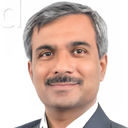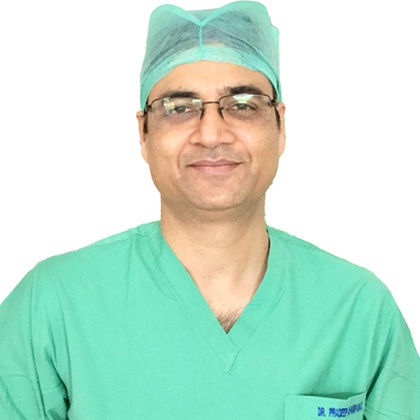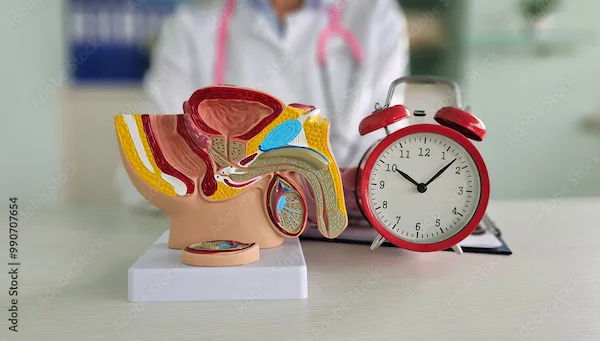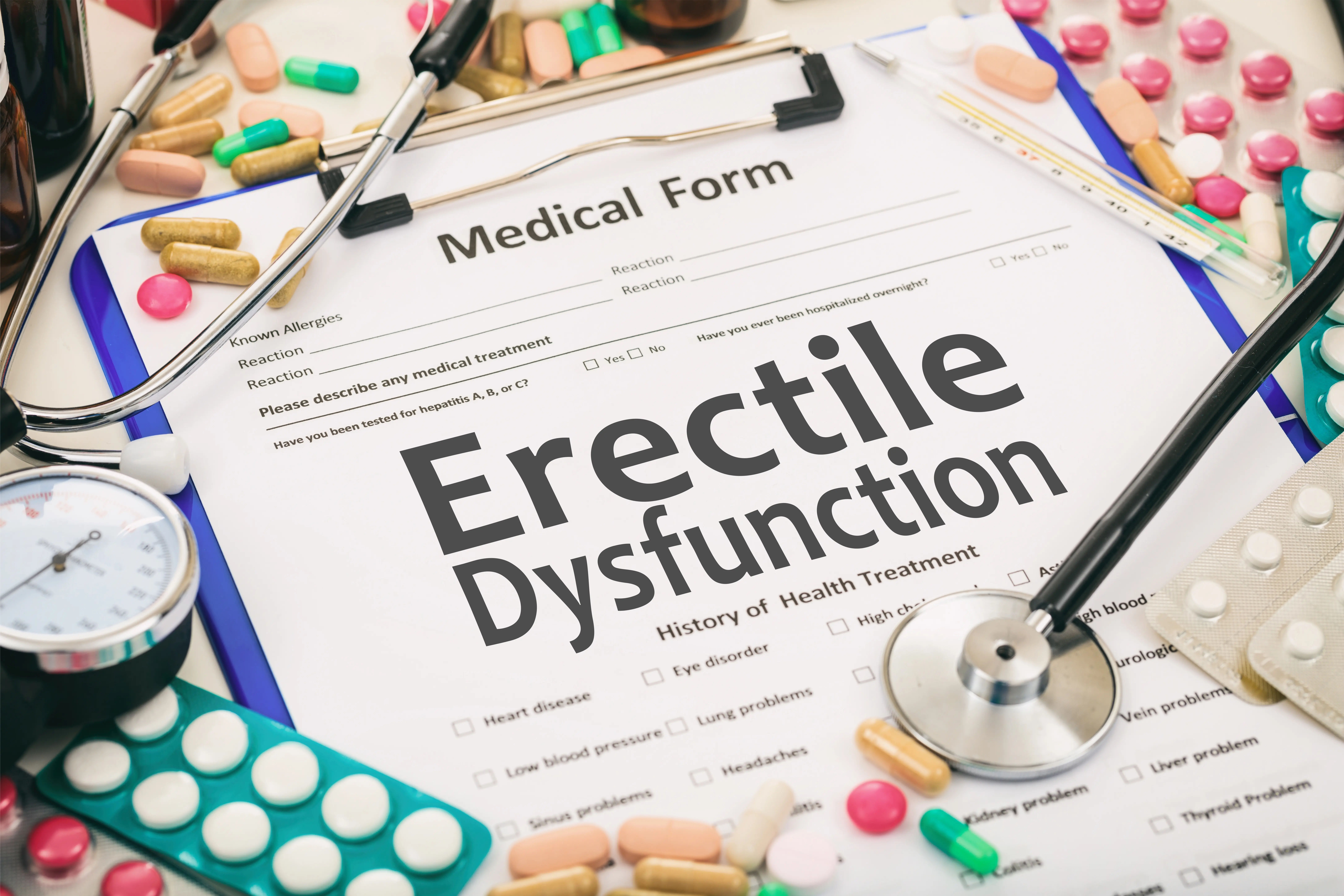What Leads To Erectile Dysfunction
Discover the causes, early signs, and treatment options for erectile dysfunction. Learn how lifestyle, physical health, and psychological factors affect erectile function and when to seek help.


What Leads To Erectile Dysfunction?
Erectile dysfunction is more common than most people realise, and it often develops gradually. For some, the first signs of erectile dysfunction are subtle—less rigidity, shorter-lasting erections, or disappearing morning erections. For others, it can arrive abruptly after a period of stress, illness, or medication changes. The good news: erectile dysfunction is treatable, and the underlying causes are often identifiable and manageable.
In this guide, we will explain what leads to signs of erectile dysfunction, how erections work, the most common physical and psychological causes, and how doctors diagnose and treat it. We will also cover practical lifestyle steps that protect erectile function, plus when to seek help—especially if ED might be a warning sign of heart or metabolic problems. Whether you are noticing early changes, supporting a partner, or exploring treatment, this comprehensive, evidence-based overview is designed for you. If symptoms persist beyond two weeks or affect your quality of life, consult a doctor online with Apollo 24|7 for further evaluation and personalised care.
Understanding Erectile Dysfunction: What It Is and What It Isn’t
Erectile dysfunction is the consistent difficulty achieving or maintaining an erection firm enough for satisfactory sexual activity. Occasional issues with erections are normal—fatigue, alcohol, or a stressful day can affect performance. ED becomes a medical concern when difficulties occur frequently, persist beyond a few weeks, or cause distress for you or your partner.
ED is common. In large population studies, some level of erectile difficulty affects a significant proportion of men with age; it is not just an “older man’s problem.” Younger men can experience ED from anxiety, lifestyle factors, or underlying conditions. Erectile dysfunction often reflects overall vascular and metabolic health, which is why evaluation matters. It is also highly treatable through lifestyle changes, counselling, medications, and devices. The key is distinguishing temporary, situational issues from a persistent pattern that deserves assessment.
A helpful rule of thumb: morning or nocturnal erections typically suggest intact blood flow and nerve function. Loss of these spontaneous erections may indicate a physical driver. Conversely, fluctuating function depending on the situation can point toward psychological contributors such as performance anxiety. Early attention can prevent a cycle of worry and avoidance, leading to better outcomes.
Consult Top Specialists
How Erections Work: The Body Systems Behind Performance
An erection is a finely tuned event involving the brain, hormones, nerves, and blood vessels. Sexual stimulation triggers nerves to release nitric oxide in the penile tissue. This relaxes smooth muscle in the corpora cavernosa, allowing increased blood flow, trapping blood, and creating rigidity. Healthy arteries must bring blood in, and the veins must compress to keep it there—any vascular disease can interfere.
Hormones also matter. Testosterone influences libido and supports erectile physiology; severe deficiency can contribute to erectile dysfunction, though many men with ED have normal testosterone. Thyroid disorders and elevated prolactin can also affect arousal and erections. The nervous system integrates mood, arousal, and physical responses, so stress, depression, or neuropathy can impair performance.
Understanding this cascade clarifies why treatments work. PDE5 inhibitors (sildenafil, tadalafil, vardenafil, avanafil) block an enzyme that breaks down cGMP, which keeps penile smooth muscle relaxed during arousal. These medicines do not cause an erection by themselves; they enhance your natural response to sexual stimulation. They tend to be less effective when blood flow is severely compromised or when hormonal or neurological factors are significant. Addressing the root cause improves results.
Early Signs and Red Flags of Erectile Dysfunction
Early signs of erectile dysfunction often include decreased firmness, shorter-lasting erections, difficulty maintaining an erection during intercourse, or a noticeable drop in morning erections. Some men notice they can achieve erections during masturbation but struggle with a partner—often a sign of performance anxiety rather than a physical blockage. Others observe a gradual decline over months, consistent with vascular or metabolic contributors.
Psychological signs include increased worry about sexual performance, avoidance of intimacy, and negative self-talk. These thoughts can create a cycle: anxiety increases adrenaline, which constricts blood vessels and makes arousal harder, reinforcing fear the next time. Breaking this loop early—through reassurance, communication, or brief counselling—can make a big difference.
Red flags that warrant prompt medical attention include ED after starting a new medication, ED accompanied by symptoms of low testosterone, and ED with chest pain, leg pain when walking, or poor exercise tolerance, which may suggest cardiovascular disease. Because erectile dysfunction can be an early marker of heart disease and diabetes, especially in men under 60, timely evaluation is wise. If your symptoms persist beyond two weeks, consult a doctor online with Apollo 24|7 or book a physical visit to discuss next steps.
Consult Top Specialists
Physical Causes and Risk Factors You Can’t Ignore
The most common physical drivers of erectile dysfunction are vascular and metabolic. Hypertension, high cholesterol, atherosclerosis, and diabetes damage the blood vessels and the endothelial lining needed to release nitric oxide. Diabetes is a major risk factor; men with diabetes develop ED more often and at younger ages than those without due to combined vascular and nerve damage. Smoking accelerates atherosclerosis and impairs nitric oxide—quitting can significantly improve function.
Endocrine issues include low testosterone, thyroid disorders, and elevated prolactin. Not every man with ED needs hormone treatment, but measuring morning testosterone can identify those who do benefit when clinically appropriate.
Neurological causes range from peripheral neuropathy to spinal cord injury, multiple sclerosis, Parkinson’s disease, and post-stroke changes. Pelvic surgeries, especially radical prostatectomy, can injure nerves essential for erections. Recovery is possible, but it often requires a structured rehabilitation plan.
Medications and substances matter. Selective serotonin reuptake inhibitors, some antihypertensives, finasteride, and certain antipsychotics can affect erection quality. Alcohol depresses arousal; chronic heavy use and some recreational drugs can impair testosterone and nerve signalling. Reviewing your medication list with a clinician can reveal reversible contributors.
Case snapshot: A 46-year-old notices softer erections and fewer morning erections. Screening labs show elevated fasting glucose and HbA1c in the diabetic range. After addressing blood sugar, losing weight, and adding a PDE5 inhibitor as needed, his erection quality improves—an example of ED flagging a silent metabolic issue early.
Psychological, Lifestyle, and Environmental Drivers
Stress, anxiety, depression, and relationship tension are common contributors to erectile dysfunction. Performance anxiety can quickly become self-reinforcing: one difficult experience leads to worry, which heightens sympathetic arousal and reduces erectile quality. Counselling or cognitive behavioural therapy can break this cycle, often combined with gradual exposure exercises and sensate focus with a partner. Sex therapy can be effective when communication or mismatched expectations are at play.
Lifestyle factors—sleep, exercise, diet, weight—strongly influence erectile function. Poor sleep disrupts testosterone and increases stress hormones. Regular physical activity improves endothelial health, nitric oxide availability, and confidence. A Mediterranean-style diet supports vascular function and weight control, helping to reverse early erectile dysfunction. Reducing alcohol and avoiding nicotine can also lead to noticeable improvements.
Environmental and mechanical elements can contribute. Long-distance cycling without a properly fitted saddle increases perineal pressure and can irritate the pudendal nerve; adjusting saddle design, position, and ride duration helps. Extended exposure to high heat does not typically cause permanent erectile dysfunction. Chronic exposure to toxins is uncommon but can interfere with hormones and nerves.
Getting Diagnosed: Tests and What to Expect
Diagnosis starts with a detailed history: onset, pattern (situational vs persistent), presence of morning erections, libido, medications, substance use, sleep, stress, relationship context, and medical conditions. Questionnaires such as the International Index of Erectile Function (IIEF) quantify baseline severity and track progress.
A focused physical exam may include blood pressure, BMI/waist circumference, pulses, genital exam, and evaluation for signs of endocrine disorders. Core labs often include fasting glucose or HbA1c, fasting lipid panel, morning total testosterone, thyroid-stimulating hormone, and sometimes prolactin. These help uncover vascular, metabolic, or hormonal drivers.
Specialised testing is reserved for selected cases. Nocturnal penile tumescence testing evaluates spontaneous nighttime erections; normal results suggest intact physiology and point toward psychological contributors. Penile duplex Doppler ultrasound assesses arterial inflow and venous leak, often after a test dose of a vasoactive drug. These studies are most useful when first-line treatments fail or surgery is considered.
Apollo 24|7 offers convenient home collection for lab tests like HbA1c, lipid profile, and testosterone. If symptoms persist despite simple measures, or if you have risk factors for heart disease, consult a doctor online to tailor testing and interpret results.
Treatment Options That Work (and How to Choose)
Start with lifestyle changes—consistent sleep, exercise, Mediterranean-style nutrition, weight loss when needed, and stopping smoking—to improve vascular health and erectile function. Even a 5–10% weight reduction in men with overweight can boost erection quality and response to medications.
Psychological therapies, including cognitive behavioural therapy and sex therapy, address performance anxiety, depressive symptoms, and relationship communication. They can be used alone for primarily psychological ED or alongside medical treatments. Many couples find that focusing on sensual connection during recovery rebuilds confidence.
Medications are effective and safe for most men. PDE5 inhibitors have response rates around 60–70%, higher when lifestyle and underlying conditions are optimised. Key safety notes: never combine with nitrates and use caution with certain alpha-blockers. Side effects can include headache, flushing, nasal congestion, or indigestion. Adjusting timing, dose titration, and multiple trials often helps before switching agents.
Devices and procedures expand options. Vacuum erection devices draw blood into the penis; with a constriction ring, they are effective and drug-free. Intracavernosal injections produce reliable erections when pills fail. Intraurethral suppositories and, in selected cases, penile implants offer definitive solutions. Low-intensity shockwave therapy is promising but varies in support; discuss evidence with a specialist.
If oral medications are ineffective after optimised trials, or if you have complex medical history, a urologist can tailor advanced therapies. Book a physical visit with Apollo 24|7 or schedule an online consult to discuss next steps.
Prevention and Long-Term Strategy
Think of erectile function as a barometer of cardiovascular and metabolic health. What protects your heart protects your erections. Practical steps: exercise most days, eat a heart-healthy diet, sleep 7–9 hours, moderate alcohol and avoid tobacco, manage chronic conditions, and review medications.
Monitor progress with a journal noting erection quality, morning erections, lifestyle changes, and side effects. Include your partner in the plan. Periodic check-ins with your clinician help adjust treatments, reassess risks, and maintain momentum.
Conclusion
Erectile dysfunction rarely has a single cause. It is usually the result of intersecting factors—vascular and metabolic health, hormones, nerves, medications, lifestyle, and psychology. Understanding what leads to signs of erectile dysfunction is the first step toward effective action. Early recognition matters: gradual declines in erection quality or disappearing morning erections are not just frustrating—they can be early clues to conditions like diabetes, high blood pressure, or high cholesterol.
The encouraging reality is that erectile dysfunction is highly treatable. Many men improve with straightforward changes—better sleep, exercise, smart nutrition, reduced alcohol, and quitting tobacco—combined with a trial of a PDE5 inhibitor. Counselling or sex therapy addresses performance anxiety and strengthens relationships. For those needing additional support, devices, injections, or implants provide reliable solutions with high satisfaction rates.
Do not go it alone or wait in silence. A brief conversation with a clinician can uncover reversible contributors and map a clear path forward. If symptoms persist beyond two weeks or if you have heart risk factors, consult a doctor online with Apollo 24|7 for individualised guidance. If lab tests are recommended, Apollo 24|7 offers convenient home collection to get you answers quickly. With the right plan, confidence and sexual health can return—often sooner than you think.
Consult Top Specialists
Consult Top Specialists
Dr S K Singhanina
Urologist
25 Years • MBBS/MS/DNB AND MCH UROLOGY
Guwahati
Apollo Clinic Guwahati, Assam, Guwahati

Dr. Ramesh H
Urologist
16 Years • MBBS, MS , Mch( Urology)
Bengaluru
Apollo Clinic, JP nagar, Bengaluru

Dr. Sudhakar G V
Urologist
25 Years • MBBS, MS(Gen.Surgery), DNB Urology
Bengaluru
Apollo Clinic, JP nagar, Bengaluru

Dr. Pavan Kumar S K
Urologist
11 Years • MBBS, MS , Mch( Urology) DNB (Urology)
Bengaluru
Apollo Clinic, JP nagar, Bengaluru

Dr. Pradeep Champawat
Urologist
10 Years • MBBS, MS, DNB Urology
Delhi
Apollo Hospitals Indraprastha, Delhi
(175+ Patients)
Consult Top Specialists
Dr S K Singhanina
Urologist
25 Years • MBBS/MS/DNB AND MCH UROLOGY
Guwahati
Apollo Clinic Guwahati, Assam, Guwahati

Dr. Ramesh H
Urologist
16 Years • MBBS, MS , Mch( Urology)
Bengaluru
Apollo Clinic, JP nagar, Bengaluru

Dr. Sudhakar G V
Urologist
25 Years • MBBS, MS(Gen.Surgery), DNB Urology
Bengaluru
Apollo Clinic, JP nagar, Bengaluru

Dr. Pavan Kumar S K
Urologist
11 Years • MBBS, MS , Mch( Urology) DNB (Urology)
Bengaluru
Apollo Clinic, JP nagar, Bengaluru

Dr. Pradeep Champawat
Urologist
10 Years • MBBS, MS, DNB Urology
Delhi
Apollo Hospitals Indraprastha, Delhi
(175+ Patients)
Consult Top Specialists
Dr S K Singhanina
Urologist
25 Years • MBBS/MS/DNB AND MCH UROLOGY
Guwahati
Apollo Clinic Guwahati, Assam, Guwahati

Dr. Ramesh H
Urologist
16 Years • MBBS, MS , Mch( Urology)
Bengaluru
Apollo Clinic, JP nagar, Bengaluru

Dr. Sudhakar G V
Urologist
25 Years • MBBS, MS(Gen.Surgery), DNB Urology
Bengaluru
Apollo Clinic, JP nagar, Bengaluru

Dr. Pavan Kumar S K
Urologist
11 Years • MBBS, MS , Mch( Urology) DNB (Urology)
Bengaluru
Apollo Clinic, JP nagar, Bengaluru

Dr. Pradeep Champawat
Urologist
10 Years • MBBS, MS, DNB Urology
Delhi
Apollo Hospitals Indraprastha, Delhi
(175+ Patients)
More articles from Erectile Dysfunction
Frequently Asked Questions
1) What are the earliest signs of erectile dysfunction?
Softer erections, shorter duration, and fewer morning erections are common early signs. If these persist for more than two weeks, speak with a clinician.
2) Can erectile dysfunction be a sign of heart disease?
Yes. ED and heart disease share vascular causes. Erectile dysfunction can precede cardiovascular events, especially in men under 60. Screening for blood pressure, lipids, and blood sugar is important.
3) Which medications can cause erectile dysfunction?
Some antidepressants, certain blood pressure medicines, finasteride, and antipsychotics can contribute. Never stop a medicine on your own—ask your clinician about alternatives.
4) Do PDE5 inhibitors work for everyone?
Many men—around 60–70%—benefit, but effectiveness depends on timing, dose, and underlying health. If pills are not helpful, devices, injections, or implants are effective options.
5) How do I get tested for erectile dysfunction?
Evaluation includes history, exam, and labs like HbA1c, lipids, and morning testosterone. Apollo 24|7 offers convenient home collection for these tests and online consults to interpret results.




